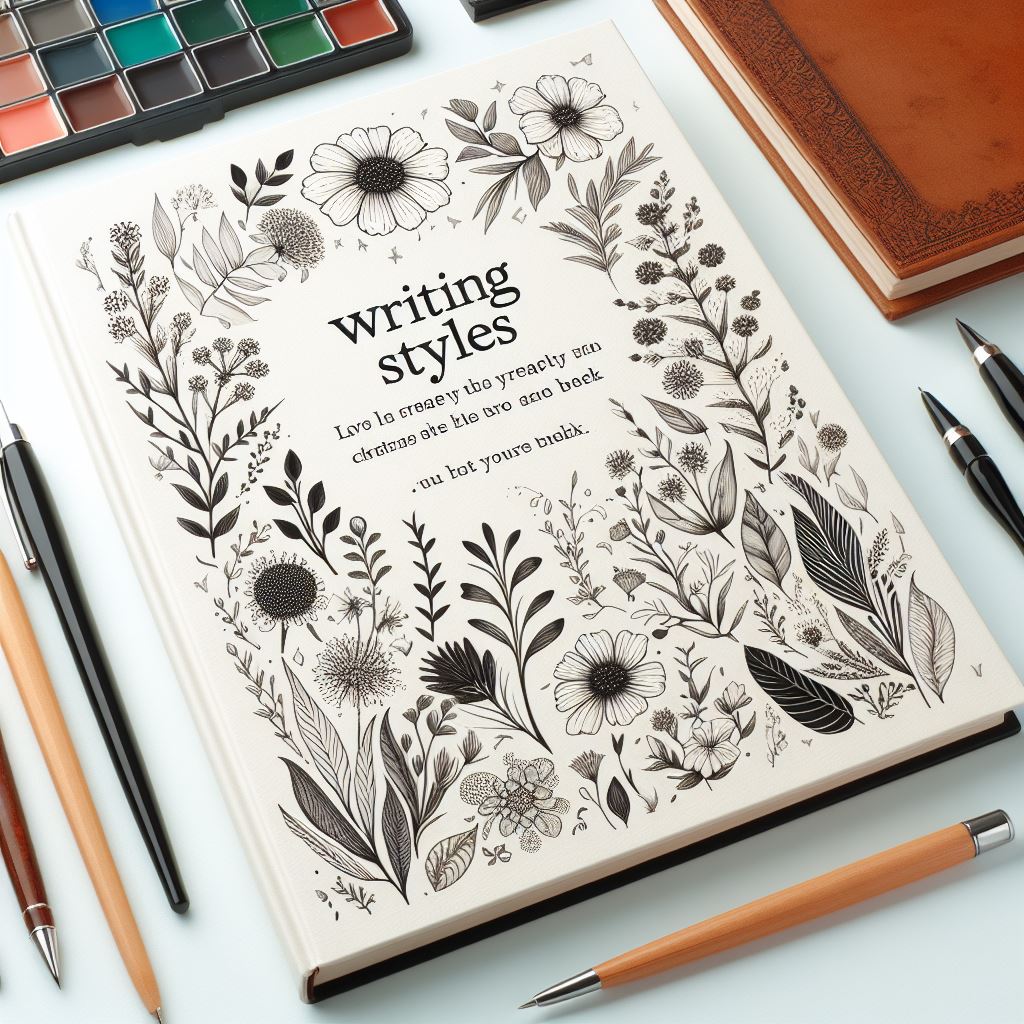A lot goes on in the writing world, and it’s only fair to compare similar things to find out what works for you. The last time, we compared blogging vs freelance writing to help new writers pick a side and thrive. Now, it is time to weigh in on content writing vs creative writing.
Many new and old writers still get it all mixed up when it’s time to show out. Maybe this is you too, always staring at your laptop, fingers frozen above the keyboard, having difficulty deciding the path to follow. You’ve got those ideas you wish to share with the world, but don’t know if you are doing content writing or creative writing.
You must understand that one type of writing is built for brands, while the other is for emotion. One follows strategy, the other one flows with imagination. Yet, they often overlap in subtle ways that confuse even experienced writers.
Writers who dare to dream big often wonder if they can be good at both or wish to know which pays better.
Don’t worry anymore because we’ll break down the fundamental differences in this post. You’ll understand what each writing style means and how to choose the one that fits your skills, goals, and personality.
Buckle your seat belt, and let’s get deeply into it, starting with definitions. Shall we?
What is content writing?
Content writing is a form of writing that communicates useful, targeted, and strategic information to a specific audience. It’s often tied to digital platforms and serves a clear purpose: to inform, educate, market, or guide the reader toward a desired action. Think blog posts, website pages, product descriptions, newsletters, social media captions, eBooks, white papers, and everything in between.
Unlike creative writing, which flows freely, content writing follows a structure. It usually involves keyword integration, formatting for readability, search engine optimization (SEO), and a clear CTA (call to action), making it ideal for businesses, brands, and marketers who want to reach their audience with intention.
For instance, if a skincare brand needs a blog post about how to use its product, that’s content writing. Its purpose is to be helpful, valuable, and aligned with business goals. Now, to creative writing.
What is creative writing?
Creative writing is expressive, imaginative, and deeply personal. It’s the kind of writing that lets your inner world spill onto the page. Additionally, the writer is not bound by structure or SEO rules. Instead, they’re guided by emotion, voice, and storytelling.
Some common examples of creative writing include short stories, poems, novels, personal essays, scripts, and even certain types of narrative blog posts. A great piece of creative writing draws you in, makes you feel something, and often sticks with you long after reading.
So, while a content writer might craft a blog post titled “5 Ways to Relieve Stress,” a creative writer could pen a short story about a woman unraveling after a chaotic week. It’s the same topic, but an entirely different approach.
I believe the definitions have opened an ‘Aha’ moment for you. Let us buttress things down with some examples.
Content writing vs creative writing examples
To get an even clearer picture, let’s compare real-world examples of content writing vs creative writing:
Content Writing Example: A product description on Amazon, a blog post titled “How to Start a Morning Routine,” a landing page for an online course, etc.
Creative Writing Example: A poem about sunrise, a fictional story set in a futuristic world, a personal essay reflecting on childhood memories, etc.
Both types of writing can be compelling. However, their goals differ; one wants to drive action or provide value, while the other aims to entertain, inspire, or provoke thought.
Is content writing easier than creative writing?
Now, that’s a tricky one. All I can say is that it depends.
Some writers feel more at home telling stories with no boundaries, while others love the challenge of writing with intention and clarity. Moreover, content writing might seem easier because it follows a clear structure and has rules to guide you. However, it also requires research, SEO understanding, audience insight, and brand voice alignment.
On the flip side, creative writing can be emotionally taxing. You’re drawing from personal experiences, weaving plots, and building entire worlds—often without a map. There are no set formulas, which can be freeing or frustrating.
So, neither is inherently easier. It’s about which aligns more with your personality, skills, and professional goals.
What are the 7 types of creative writing?
Let’s break down the most common and widely accepted types of creative writing:
- Short Stories: Brief narratives with a clear beginning, middle, and end.
- Novels: Long-form fiction with complex plots and developed characters.
- Poetry: Expressive, rhythmic writing focused on emotions and imagery.
- Scripts/Screenplays: Written work for film, TV, or stage.
- Personal Essays: Reflective, often first-person narratives.
- Flash Fiction: Extremely short stories that pack an emotional or narrative punch.
- Creative Nonfiction: Factual content told with literary techniques (e.g., memoirs, travel writing).
Of course, these are not strict boxes. Writers often blur the lines between them, and many successful authors dabble in multiple types. Moving forward, many writers usually have this question on their lips. Scroll down to see if you’ve asked about this before.
Can a creative writer become a content writer?
Absolutely, and many have. In fact, having a creative writing background can be a huge asset in content writing.
Creative writers bring originality, flair, and emotional depth to their content. Merging both makes them more likely to write copy that truly connects with readers instead of sounding shallow.
But transitioning into content writing means embracing strategy. You must understand tone, structure, keyword placement, formatting, and other best practices. The good news is that these are all skills you can learn.
If you’ve written a short story or a poem, you already know how to connect with emotion. With training and practice, you can channel that into writing persuasive web copy or blog posts that convert.
So yes, a creative writer can become a content writer, often, a brilliant one.
What skills do you need for both?
Whether you’re leaning toward content or creative writing, a solid skill set forms your foundation.
Shared skills:
- Clarity: Clear writing is good writing.
- Grammar and punctuation: These are non-negotiables.
- Voice and tone: Every writer needs a unique voice and the ability to adapt tone.
- Consistency: Writing regularly improves flow and confidence.
Content writing-specific skills:
- SEO basics: Understanding how search engines work and how to write accordingly.
- Structure: Knowing how to format content for web readability.
- Audience awareness: Tailoring content to meet readers’ expectations and pain points.
- Research: Backing up your content with reliable facts and examples.
Creative writing-specific skills:
- Storytelling: Building tension, character arcs, and satisfying endings.
- Imagination: Creating vivid scenes, dialogues, and emotions.
- Emotional resonance: Knowing how to move your readers.
Good writers often blend these skills, no matter their chosen path.
Which one should you start with as a beginner?
If you’re just getting started and feeling torn, think of it this way:
Do you like writing from personal experiences or inventing characters and plots? Then, start with creative writing.
Do you enjoy explaining things, teaching people, or writing in a helpful tone? Try content writing first.
When we talk about content vs creative writing for beginners, many new writers decide to test the waters by starting a blog. This is good because it permits them to experiment with both styles, like writing how-to posts and sprinkling in storytelling elements now and then.
Also, think about your goals. If you want to make money fast, content writing is usually easier to monetize through freelancing or remote jobs. But if you want to publish a novel or start a poetry blog, creative writing might be your playground.
Does content writing pay well?
Here’s the truth: content writing can pay very well, but it depends on your niche, skill level, and where you’re getting your jobs.
Entry-level writers might start small, earning $20–$50 per article. But as you build expertise, especially in high-demand industries like tech, finance, or health, you can earn anywhere from $300 to $1000+ per project. Long-form content, SEO writing, and copywriting often come with bigger paychecks.
Knowing how to become a content writer who gets paid well involves more than just writing. You’ll need to learn content strategy, brand storytelling, and user intent. Over time, as you niche down and build a strong portfolio, your rates will rise.
Writers who treat content writing as a career, not just a side hustle, tend to scale faster.
Final Thoughts on Content Writing vs Creative Writing
Both paths are valid, rewarding, and filled with possibilities. The good thing is, you don’t have to choose just one. Many writers combine both, switching lanes based on the project, client, or mood.
However, understanding the differences between content writing vs creative writing can help you navigate your journey more clearly. You’ll write better, pitch smarter, and build a career that feels good to you.
It truly does not matter if you’re aiming for the heart (creative writing) or the mind (content writing); what matters most is showing up, writing consistently, and staying true to your voice.
Where will you be pitching your tent, you amazing writer? Content writing, creative writing, or both?


